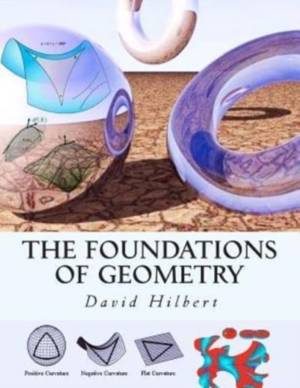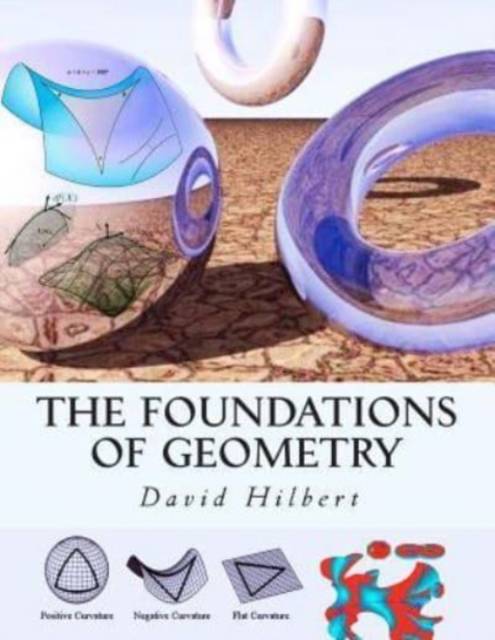
- Retrait gratuit dans votre magasin Club
- 7.000.000 titres dans notre catalogue
- Payer en toute sécurité
- Toujours un magasin près de chez vous
- Retrait gratuit dans votre magasin Club
- 7.000.0000 titres dans notre catalogue
- Payer en toute sécurité
- Toujours un magasin près de chez vous
Description
The material contained in the following translation was given in substance by Professor Hilbert as a course of lectures on euclidean geometry at the University of G]ottingen during the winter semester of 1898-1899. The results of his investigation were re-arranged and put into the form in which they appear here as a memorial address published in connection with the celebration at the unveiling of the Gauss-Weber monument at G]ottingen, in June, 1899. In the French edition, which appeared soon after, Professor Hilbert made some additions, particularly in the concluding remarks, where he gave an account of the results of a recent investigation made by Dr. Dehn.These additions have been incorporated in the following translation. As a basis for the analysis of our intuition of space, Professor Hilbert commences his discussion by considering three systems of things which he calls points, straight lines, and planes, and sets up a system of axioms connecting these elements in their mutual relations. The purpose of his investigations is to discuss systematically the relations of these axioms to one another and also the bearing of each upon the logical development of euclidean geometry. Among the important results obtained, the following are worthy of special mention:1. The mutual independence and also the compatibility of the given system of axioms is fully discussed by the aid of various new systems of geometry which are introduced.2. The most important propositions of euclidean geometry are demonstrated in such a manner as to show precisely what axioms underlie and make possible the demonstration.3. The axioms of congruence are introduced and made the basis of the definition of geometric displacement.4. The significance of several of the most important axioms and theorems in the development of the euclidean geometry is clearly shown; for example, it is shown that the whole of the euclidean geometry may be developed without the use of the axiom of continuity; the significance of Desargues's theorem, as a condition that a given plane geometry may be regarded as a part of a geometry of space, is made apparent, etc.5. A variety of algebras of segments are introduced in accordance with the laws of arithmetic. This development and discussion of the foundation principles of geometry is not only of mathematical but of pedagogical importance. Hoping that through an English edition these important results of Professor Hilbert's investigation may be made more accessible to English speaking students and teachers of geometry, I have undertaken, with his permission, this translation. In its preparation, I have had the assistance of many valuable suggestions from Professor Osgood of Harvard, Professor Moore of Chicago, and Professor Halsted of Texas. I am also under obligations to Mr. Henry Coar and Mr. Arthur Bell for reading the proof.
Spécifications
Parties prenantes
- Auteur(s) :
- Editeur:
Contenu
- Nombre de pages :
- 94
- Langue:
- Anglais
Caractéristiques
- EAN:
- 9781505489040
- Date de parution :
- 11-12-14
- Format:
- Livre broché
- Format numérique:
- Trade paperback (VS)
- Dimensions :
- 216 mm x 279 mm
- Poids :
- 240 g

Les avis
Nous publions uniquement les avis qui respectent les conditions requises. Consultez nos conditions pour les avis.






